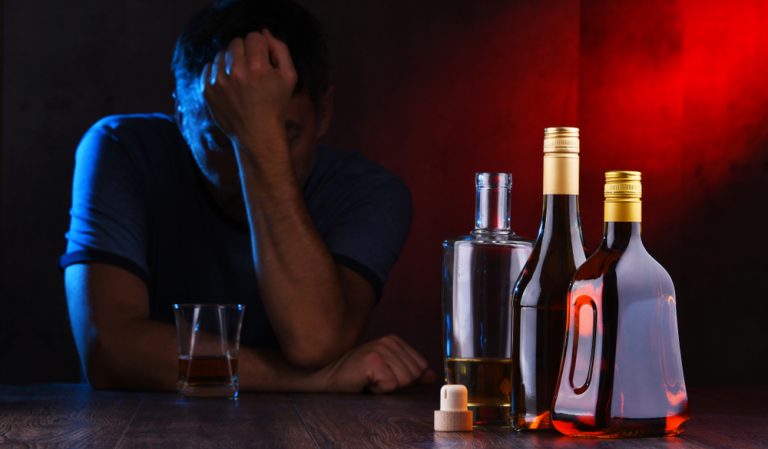Mable-Jones lost a decade to addiction, entering rehab and relapsing repeatedly. Kelly co-authored a peer-reviewed study published last year that found roughly 22.3 million Americans — more than 9% of adults — live in recovery after some form of substance-use disorder. The self-help support group message is that addiction is an ongoing disorder with a danger of relapse. Self-help support groups can decrease the sense of shame and isolation that can lead to relapse. While naloxone has been on the market for years, a nasal spray (Narcan, Kloxxado) and an injectable form are now available, though they can be very expensive.
COVID Virus Found in ‘Common Backyard Animals’ in US
In the absence of triggers, or cues, cravings are on a pathway to extinction soon after quitting. But some triggers can’t be avoided, and, further, the human brain, with its magnificent powers of association and thinking, can generate its own. Studies show that craving for alcohol peaks at 60 days of abstinence. “But while the path to recovery is important, people need to stay alive to make it to recovery,” said the statement issued by Yuval Daniel, the Minister’s press secretary. He pleaded guilty to a felony drug charge, and spent 14 months in a drug-court program, completing maintenance on a fairground in upstate New York.
Substance use disorders
Experts acknowledge addiction’s multifaceted nature, encompassing physiological, psychological, and social components. A strong support system, adherence to an after-care plan, a recovery-friendly environment, and seeking help during stress reduce the risk of relapse. Most drugs affect the brain’s “reward circuit,” causing euphoria as well as flooding it with the chemical messenger dopamine. A properly functioning reward system motivates a person to repeat behaviors needed to thrive, such as eating and spending time with loved ones. Surges of dopamine in the reward circuit cause the reinforcement of pleasurable but unhealthy behaviors like taking drugs, leading people to repeat the behavior again and again.
Family, Friends, and Addiction Recovery
You should never feel ashamed or humiliated about previous drug use or be denied medication for pain; if that happens, find another provider. Surround yourself with people who support your sobriety, not those who tempt http://www.vse-znayka.ru/how-to-repair-and-renew-your-romantic-relationship-3.html you to slip back into old, destructive habits. Once you’re sober, the negative feelings that you dampened with drugs will resurface. For treatment to be successful, you’ll first need to resolve your underlying issues.
Amherst Animal Hospital continues legacy of care for pets
Many organizations, however, are small and not as familiar with how to collect and analyze data. Building relationships with some of these groups takes persistence and patience, toward improving their impact on people’s lives, he says. Travis Rasco in Upstate New York says he’s grateful he got enough time, enough chances and enough help to rebuild his life. Eddie said their research suggests more needs to be done to keep people alive while the healing process works.
At Mass General Brigham, where I work, we are focusing on substance use disorder and equity in outcomes as a top clinical priority across the entire system. We are embedding addiction specialists, nurses, and peer recovery coaches — people who themselves have lived experience with recovery from addiction — into medical settings to support people on their journeys. We have opened four so-called bridge clinics across Massachusetts since 2016, which provide walk-in, easy-to-access, comprehensive substance use disorder care with multi-disciplinary teams of experts. And we are actively monitoring outcomes and improvements, all with a focus on eliminating inequities. Moreover, integrating various modalities into addiction recovery recognizes that there is no one-size-fits-all solution.
Substance Abuse Withdrawal
- The self-help support group message is that addiction is an ongoing disorder with a danger of relapse.
- Studies show that families that participate in treatment programs increase the likelihood of a loved one staying in treatment and maintaining gains.
- In a study by the Radiological Society of North America, heavy phone use was linked to an upsetting ratio of GABA to other neurotransmitters.
- The best way to handle a relapse is to take quick action to seek help, whether it’s intensifying support from family, friends, and peers or entering a treatment program.
- Depending on the addiction, medications may also be available to help.
For all practical purposes with regard to drug use, the terms remission and recovery mean the same thing—a person regaining control of their life and reversing the disruptive effects of substance use on the brain and behavior. The Diagnostic and Statistical Manual of Mental Disorders (DSM) avoids the terms addiction and recovery. Sustained remission is applied when, after 12 months or more, a substance is no longer used and no longer produces negative life consequences. Gaining the skills to avoid relapse is a necessary part of the recovery process.

Drug and alcohol detoxification programs prepare a person for treatment in a safe, controlled environment where withdrawal symptoms (and any physical or mental health complications) can be managed. Detox may occur in a hospital setting or as a first step to the inpatient or outpatient rehabilitation https://atomplus.net/v-dorogu/3729-club-music-and-singles-tunnel-2cd-2016.html process. He states that research shows that family-based support for addiction recovery is critical but often not obtained. Yet sustained, personalized recovery services are essential because treatment is just the first step toward growth and finding a high quality of life without substances.

However, as science continues to link health problems to cell phone use, it is essential to be proactive. Now is the time to demonstrate what an ideal model for truly addressing addiction like a health condition could look like. Mark S. Gold, M.D., is a pioneering researcher, professor, and chairman of psychiatry at Yale, the University of Florida, and Washington University in St Louis. His theories have changed the field, stimulated additional research, http://jocker.dn.ua/jenshiny-v-sovremennoi-rok-myzyke and led to new understanding and treatments for opioid use disorders, cocaine use disorders, overeating, smoking, and depression. At first, Smith tried valiantly to obtain funding for his free clinic from the state to treat all these problems in one place, but to no avail. Rock stars and promoters of the time, aware of the kindness of Dr. Dave and his staff, helped fund the clinic, which became known as the Haight Ashbury Free Clinic (HAFC).






